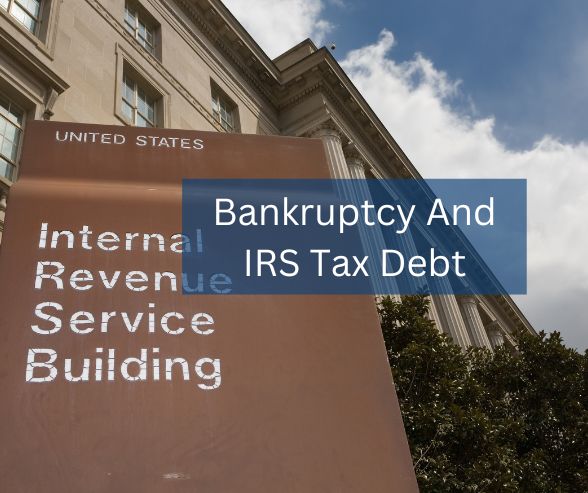Bankruptcy Can Clear Tax Debt
Can you file bankruptcy on IRS Tax Debt? You can file bankruptcy on IRS tax debt. When you file for bankruptcy, the IRS will stop collecting from you for some time. A court in the right circumstances may even wipe out tax debts that are old. The IRS has to stop collecting from you once automatic stay becomes active.
That means they no longer can send you collection notices, levy your bank accounts, or garnish your wages. But the IRS can hold onto your refund and use it instead to pay back child support debt after the automatic stay expires. Remember that child support collections are not subject to an automatic stay.
How Automatic Stay Works
 An automatic stay usually is usually imposed the moment you file for bankruptcy. The automatic stay stops lawsuits related to the debt you owe and stops collection efforts from your creditors. That means creditors can no longer garnish your wages, and can’t sue, or make aggressive phone calls as they try to collect their money.
An automatic stay usually is usually imposed the moment you file for bankruptcy. The automatic stay stops lawsuits related to the debt you owe and stops collection efforts from your creditors. That means creditors can no longer garnish your wages, and can’t sue, or make aggressive phone calls as they try to collect their money.
You no longer have to worry about foreclosures, repossessions, and collection lawsuits.
When Does An Automatic Stay Expire?
The automatic stay expires 30 days after filing if you had a bankruptcy filing the previous year and voluntarily dismissed the case. You can ask for the stay to continue.
There will be no automatic stay if you file for bankruptcy two or more times in the previous year and voluntarily dismiss them. The court will only allow an automatic stay if you show good faith intent, which means you need to prove you are not using bankruptcy as a tool to help you avoid paying your creditors.
This applies even if you had filed for bankruptcy in previous years.
Can The Bankruptcy Court Discharge Tax Debt?
Situations, where tax debt is discharged, are uncommon but that doesn’t mean it’s impossible for your tax debt to be discharged. Tax debts that you incurred three years before you filed for bankruptcy may be wiped out. But this depends on where you reside.
In some states, your tax debt can only be discharged if you file your tax return on time. An IRS lien may also determine whether your IRS tax debt is discharged.
The IRS will still be able to collect the tax debt you incurred after you filed for bankruptcy.
How To Navigate Your Bankruptcy Case
People often assume that bankruptcy is something that happens to the financially irresponsible. But anyone can face a financial crisis caused by such things as losing a job, getting sick, and more. When you find yourself dealing with IRS debt, you need to be able to determine whether bankruptcy is good for you or not.
You need to research online to learn as much about bankruptcy as possible. Through this research, you will learn that while bankruptcy can give you a fresh start and stop creditor collection efforts, it also has some unpleasant downsides.
You Have To Protect Your Interests
You can protect your interests by hiring an experienced bankruptcy attorney that can guide you through the bankruptcy process. Bankruptcy is complicated and you need someone who knows what type of bankruptcy suits your situation.